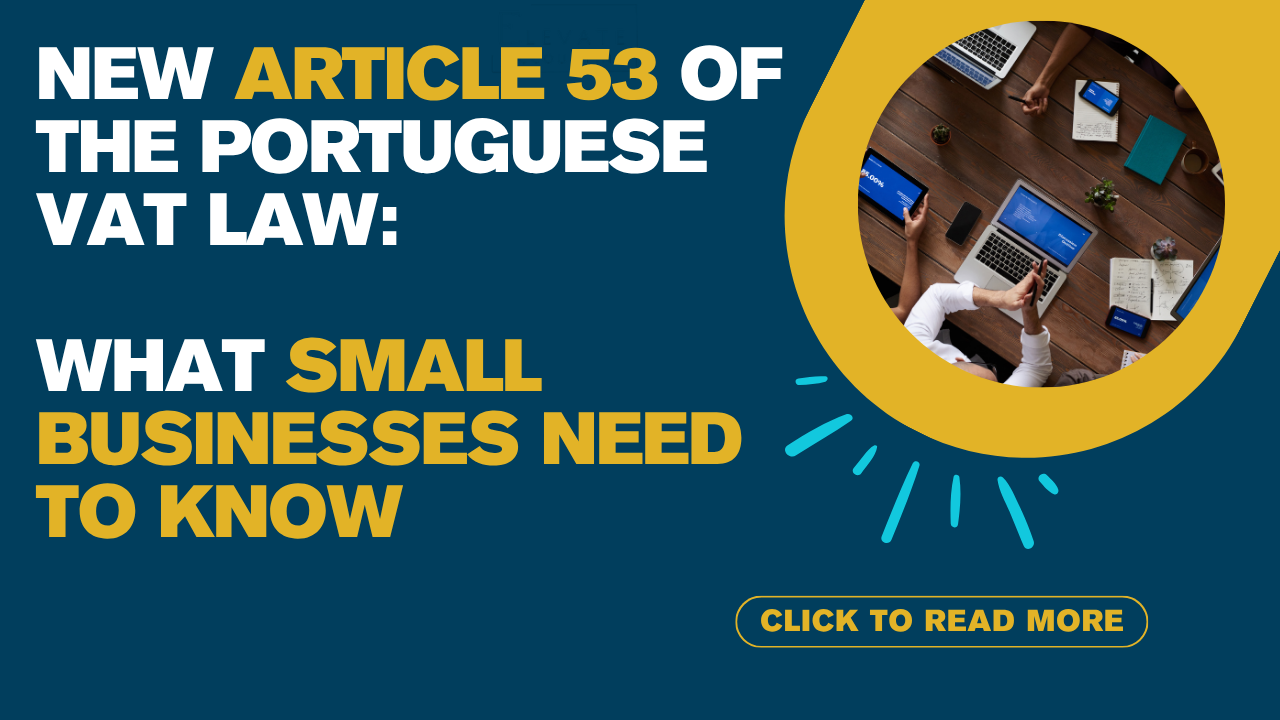
The new Article 53 of the Portuguese VAT Law (CIVA) changes the Special Exemption Regime (SER) for small businesses. These changes affect both Portuguese residents and non-residents and they determine whether or not a business must start charging VAT on its invoices. Here’s a simple guide to the most important points.
The Special Exemption Regime (SER) is designed for small businesses and freelancers whose annual turnover is below a certain limit. Under this regime, they are exempt from charging VAT on their invoices and do not deduct VAT on their business expenses.
In simple terms:
This regime helps very small businesses and independent professionals reduce administrative work and remain competitive on price.
Example: You have €14,500 turnover. You issue a €1,500 invoice. You must charge VAT on that invoice because it increased your revenue above €15,000.
Have you registered for VAT in Portugal? Know all about “When do I have to register for VAT in Portugal in 2025?”
A major change in 2025 affects people and businesses who do not reside in Portugal , in other words, those that do not have a registered office or tax address in Portugal.
These businesses can no longer use the Special Exemption Regime (SER), and they must register for VAT and start issuing invoices with VAT included. This is true, even if they are making less than €15,000 per year.
Key points:
Not all activities are treated the same way under VAT law. The type of service you provide determines whether you can use the SER.
Tip: Keep exempt and non-exempt services separate in your accounting and sales invoices.
Some businesses sell outside Portugal, and these transactions can affect VAT obligations.
If you sell to other EU countries or outside Europe, it’s best to discuss your specific case with an accountant in Portugal who understands international VAT rules.
The new Article 53 makes rules clear for small businesses:
Small businesses should check their VAT setup carefully and update invoicing to stay fully compliant.
At Elevate Accounting, our team of English-speaking accountants in Portugal helps clients understand these changes, stay compliant, and avoid unnecessary tax surprises.